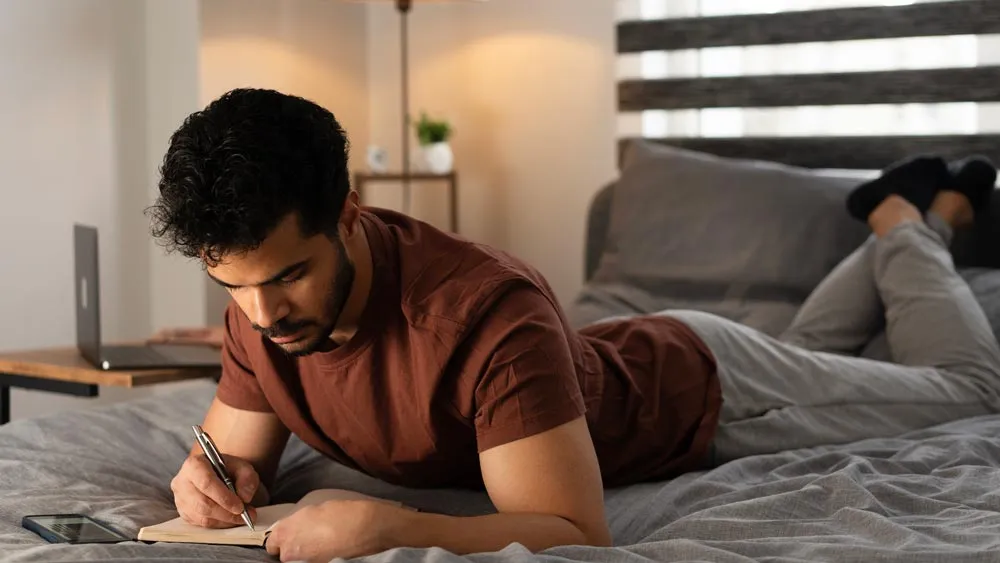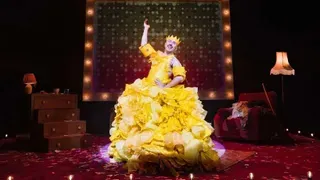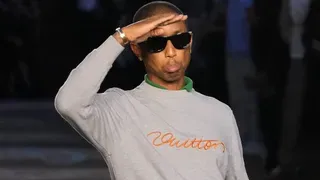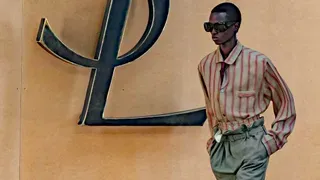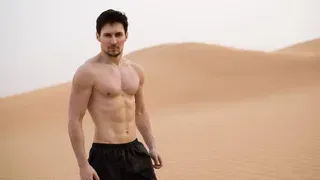January 29, 2011
Hawaii's Best Attractions - For Free
Robert Doyle READ TIME: 6 MIN.
HONOLULU (AP) - While planning a weeklong family trip to Hawaii as an escape from winter, I kept getting suggestions from friends, websites and even my kids for all kinds of "must-see" activities.
Helicopter tours! Dolphin encounters! Luaus! Bike rides down volcanic mountains!
Then I checked out the prices for all these marvels. Helicopter tour, $200. Dolphin encounter, $100. Luau, $100. Bike ride, $100.
Now multiply each fee by four, for me, my spouse and two kids. I'd just added $2,000 to the budget for our trip.
But if we didn't do any of these things, would we really feel we'd missed out?
I'm happy to report we skipped 'em all with no regrets. Yet our trip to Hawaii was spectacular. We hiked through rain forests, walked across a volcano floor, stargazed from the world's tallest mountain, and swam in a bay so full of colorful sea life that it was like stepping into an aquarium. We visited Pearl Harbor, climbed Diamond Head, sunbathed on Waikiki and body-surfed at Hanalei Bay. We saw petroglyphs on a remote seaside trail, and watched Hawaiian dancers in a park at sunset. We even stopped by the apartment building where Barack Obama was raised (1617 S. Beretania St., Honolulu), because I wanted my city-born kids to see that you don't have to grow up in a mansion to be president.
The cost for these activities, aside from parking or car entry fees: Zero.
Which is not to say that a vacation to Hawaii can be done on a dime. We pounced on a $550 round-trip airfare, but even that meant $2,200 for a family of four. Because it was our first visit, we hopscotched among three islands - the Big Island, Oahu and Kauai - which meant $60-per-person flights from one island to the next. My husband covered six nights' lodging for free by saving hotel credit card points for more than a year, but the one hotel night we paid for ran $350. We also paid for rental cars, but that let us skip taxis and tour buses.
We stuffed ourselves at free hotel breakfasts and at places like Me's BBQ, 151 Uluniu St. in Waikiki on Oahu, where the plate lunch (a mix of choices including chicken, fish, pork, vegetables, rice and macaroni salad) fills you up for under $10. The ubiquitous Hawaiian ABC chain became our second home, as it does for many tourists, offering basics like sunscreen and postcards as well as fresh fruit, sushi and sandwiches.
But most of all, we collected memories from one amazing adventure to the next, without spending a lot of cash. Here are some details.
-KALALAU TRAIL AND HANALEI BAY ON KAUAI: The Kalalau Trail on Kauai's Napali Coast is 11 miles one way, but the first section - four miles round trip - makes a perfect half-day outing, http://www.kalalautrail.com/. Parking is free but the limited spots fill up early. The steep trail can be muddy and slippery; wear sturdy footwear. Scenery ranges from lush and jungle-like as you climb the mountain, to dramatic overlooks from high cliffs over the ocean, to roaring waves crashing on a rocky beach.
Numerous signs warn against swimming; the surf is known for deadly rip tides. But when you're done hiking, drive a short distance to the public beach at beautiful Hanalei Bay for a dip.
-MAUNA KEA, VOLCANOES PARK AND KAHULUU BAY ON THE BIG ISLAND:
Mauna Kea, the world's tallest mountain (30,000 feet from its base in the ocean to its summit, which sits 14,000 feet above sea level), is home to many of the world's largest observatories. Guided tours to the top (including food and transportation) can run $200, but there are two free alternatives.
Free stargazing programs are held nightly at the visitors center, located at 9,000 feet. It was cloudy the night we attended, and while we waited for better weather, we enjoyed hearing about research done on the mountain. When skies cleared, we looked through a telescope at Mars' polar ice cap and other celestial wonders.
Best souvenir at Mauna Kea: "Beware of Invisible Cows" bumper sticker, which refers to cows that may be hidden by fog on the rough mountain road. Most rental car companies prohibit driving to Mauna Kea because of road conditions, but one rental company, Harper - http://www.harpershawaii.com - rents four-wheel-drive vehicles specifically for Mauna Kea. (Don't be unduly scared, though; we found the road to be no more challenging than the potholed, swerving highways around New York City.) Four-wheel drive vehicles can also participate in free weekend caravans to the summit, though the public is not permitted to look through the big telescopes at the top. (Stargazing events use smaller portable scopes.) Details at http://www.ifa.hawaii.edu/info/vis/.
For me, the highlight of our week was a day spent in the astonishing landscapes of Hawaii Volcanoes National Park, http://www.nps.gov/havo/ (car entry fee, $10). We hiked through lush rain forests filled with songbirds and giant ferns, then across the black-cratered floor of the Kilauea volcano, punctuated occasionally by bright red lehua flowers. Elsewhere in the park, the black volcanic rock runs right to the edge of the sea. The volcano remains active, so depending on volcanic activity during your visit, plumes of white smoke may be visible in daylight, and a bright orange lava glow may be seen at night. Don't miss the easy hike to the Puuloa site to see thousands of petroglyphs - drawings carved in rocks centuries ago by native Hawaiians.
A final Big Island wonder was Kahuluu Beach Park in Kona. For under $10, you can rent snorkel gear on site and wade into the water to see coral and fish. The sea life is so colorful, you don't even need to put your head underwater to see it, though you'll want water shoes for the rocky bottom. Huge green sea turtles can be observed swimming here too. The parking lot fills up fast; street parking is available.
-DIAMOND HEAD, PEARL HARBOR, HULA SHOW AND SURFING ON OAHU:
The famous beach at Waikiki is located in Honolulu on Oahu. Here I found a wonderful free alternative to a luau, which I wanted to attend not so much for the mai tais as for the performances. The Kuhio Beach Hula Show offers a charming, authentic show of traditional Hawaiian music, dance and stories with a torch-lighting. It's held Tuesday, Thursday, Saturday and Sunday at 6:30 p.m. (6 p.m. in November, December and January). The magical outdoor setting is in Kuhio Beach Park, by a giant banyan tree on Kalakaua Avenue, near the statue of the famous surfer, Duke Kahanamoku.
No visit to Oahu is complete without visiting its two most famous landmarks, Diamond Head and Pearl Harbor. Arrive first thing to beat the crowds. A steep 1.6-mile roundtrip trail to the summit of Diamond Head's volcanic cone offers panoramic views of the ocean and Honolulu; parking is $5 (pedestrians, $1 per person), http://bit.ly/eoB6kg.
At Pearl Harbor - http://www.nps.gov/valr/ - your visit begins with a film on the site's history. Then take a short boat ride to the USS Arizona Memorial, which is located just offshore above the sunken vessel where more than 1,000 of the victims remain entombed. Gun turrets and other wreckage from the destroyed ship are visible through the water; nearly 70 years after the Japanese bombing that sunk the ship, oil still leaks from below. The film is less than a half-hour, the boat ride and visit to the memorial take another 45 minutes round-trip. Parking is limited; visitors are encouraged to take buses or taxis to the site.
We did opt for a few small splurges elsewhere on Oahu. We skipped the cruises and outrigger canoe trips from the beach at Waikiki, but the kids wanted to try surfing. We found $30 one-hour lessons from Aloha Beach Service near the Moana Surfrider Hotel that got them up and riding the waves.
We had no interest in the Coach, Fendi and other designer shops near the beach, but we decided to check out Bailey's Antiques and Aloha Shirts, 517 Kapahulu Ave., about a mile from the center of Waikiki toward Diamond Head. The shop offers 15,000 vintage floral shirts going back to the 1950s, in every size, pattern and color, from $4 to $80 and up. We each brought home a souvenir shirt.
When we arrived in Hawaii, we'd found two almost-new boogie boards standing by a garbage can discarded by departing tourists. The day we left, we passed them on to another family. After all, why not help someone else save a few bucks?
Long-term New Yorkers, Mark and Robert have also lived in San Francisco, Boston, Provincetown, D.C., Miami Beach and the south of France. The recipient of fellowships at MacDowell, Yaddo, and Blue Mountain Center, Mark is a PhD in American history and literature, as well as the author of the novels Wolfchild and My Hawaiian Penthouse. Robert is the producer of the documentary We Are All Children of God. Their work has appeared in numerous publications, as well as at : www.mrny.com.
